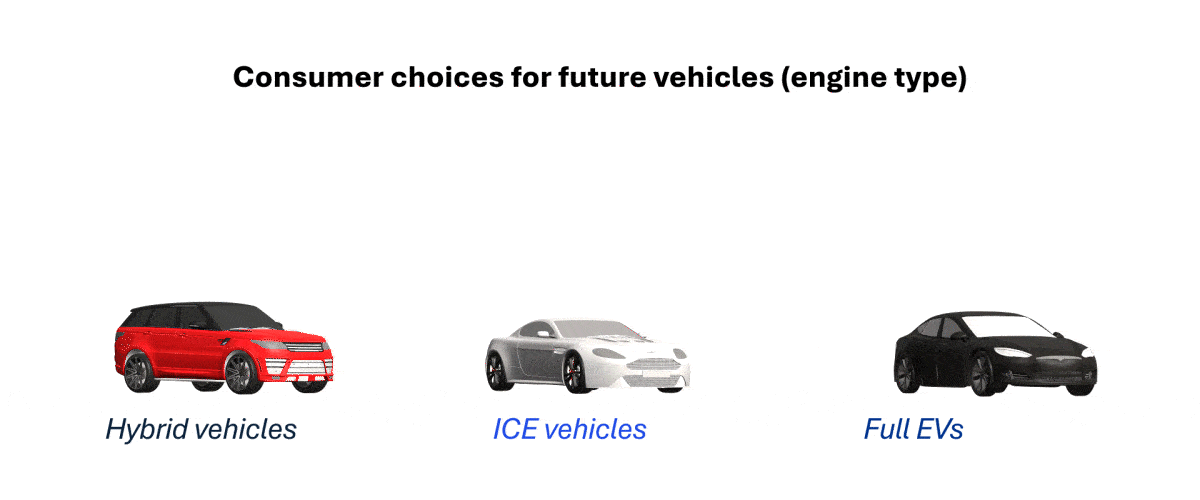Introduction to The Electric Vehicles (EV) 2024 Report
For over a century, the internal combustion engine (ICE) reigned supreme in the automotive industry. However, a seismic shift is underway, fueled by environmental concerns, technological advancements, and consumer preferences. Battery electric vehicles (BEVs) are rapidly emerging as the new powertrain king, attracting significant investments from automotive giants, startups, tech companies, and suppliers alike. This global phenomenon is mirrored in Vietnam, a market on the cusp of explosive growth in the electric vehicle (EV) segment.


"Living green" is no longer just a trend; it has become a goal and an essential criterion influencing modern life behaviors for most people. Over the past decade, Chợ Tốt Xe has embarked on a mission to create a new journey for millions of used vehicles, through trade-in campaigns. Our initiatives have reduced millions of tons of CO2 and helped users transition quickly to electric vehicles. In the coming decade, Chợ Tốt Xe commits to improving the experience of searching for, selecting, and purchasing electric vehicles across all platforms.
Trieu Khac Thiep
Director, Head of Vehicles
Chợ Tốt Xe
Explore Vietnam's electric vehicle market with our latest report. Discover key insights, future trends, consumer preferences, market dynamics driving the transition to electric mobility.
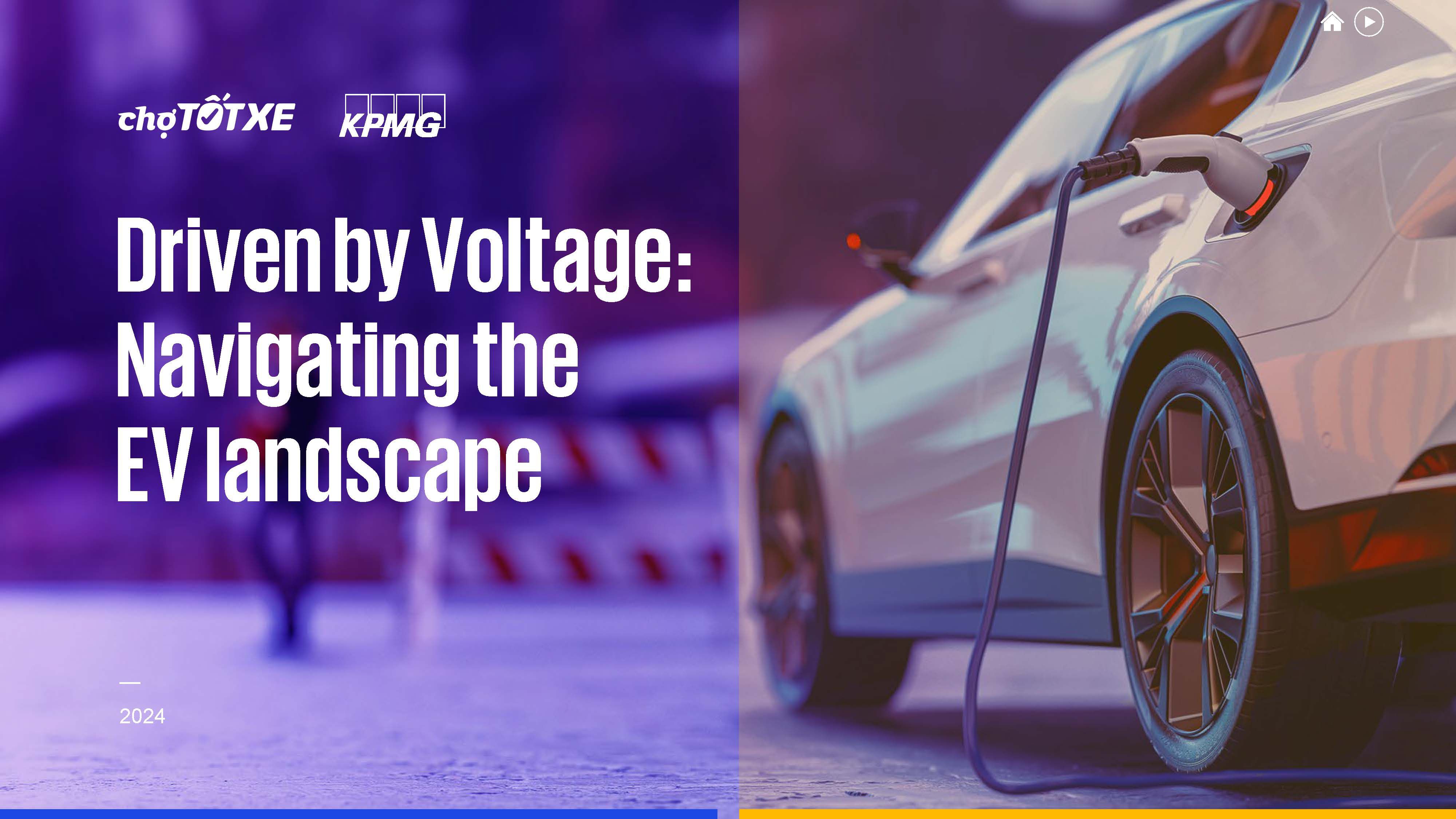

Key Insights
Rising Interest in Vietnam's Electric Vehicle Market
Despite being relatively new in Vietnam's Electric Vehicle Market, electric vehicles have generated significant local interest, with nearly 70% of survey participants expressing a tendency to buy an EV (including full EVs and hybrid vehicles).
Younger customers are more likely to own an EV
Participants from early Gen Z and Millennials (aged 25-44), with greater financial independence, are more receptive to new and emerging technologies such as full EVs or hybrid vehicles. In contrast, older generations and the youngest group tend to prefer traditional ICE vehicles.
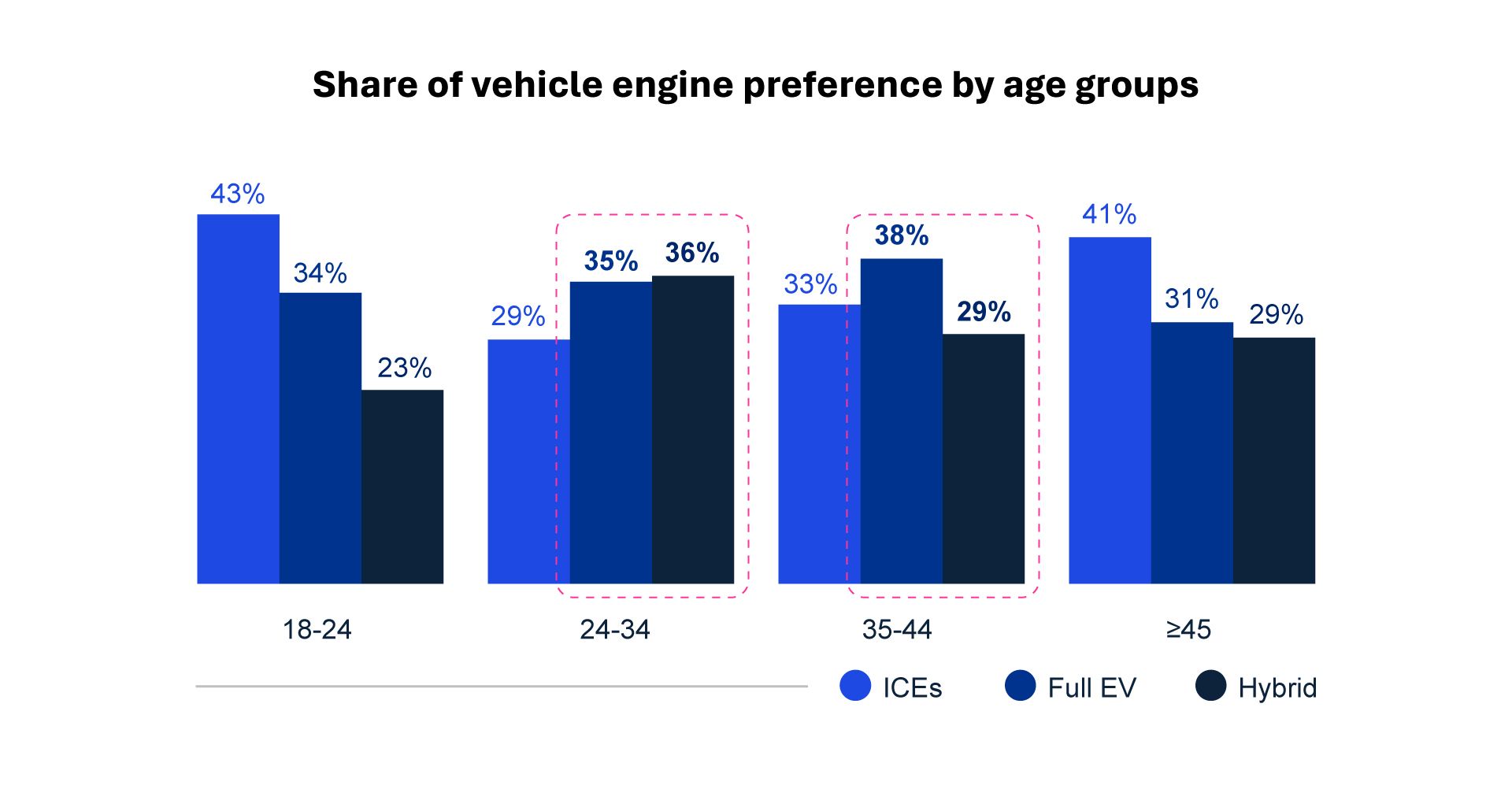
Charging station infrastructure is the main concern
The widespread availability of charging stations is crucial for potential EV buyers. Enhancing this infrastructure will significantly influence and potentially change the minds of those currently hesitant to buy EVs.
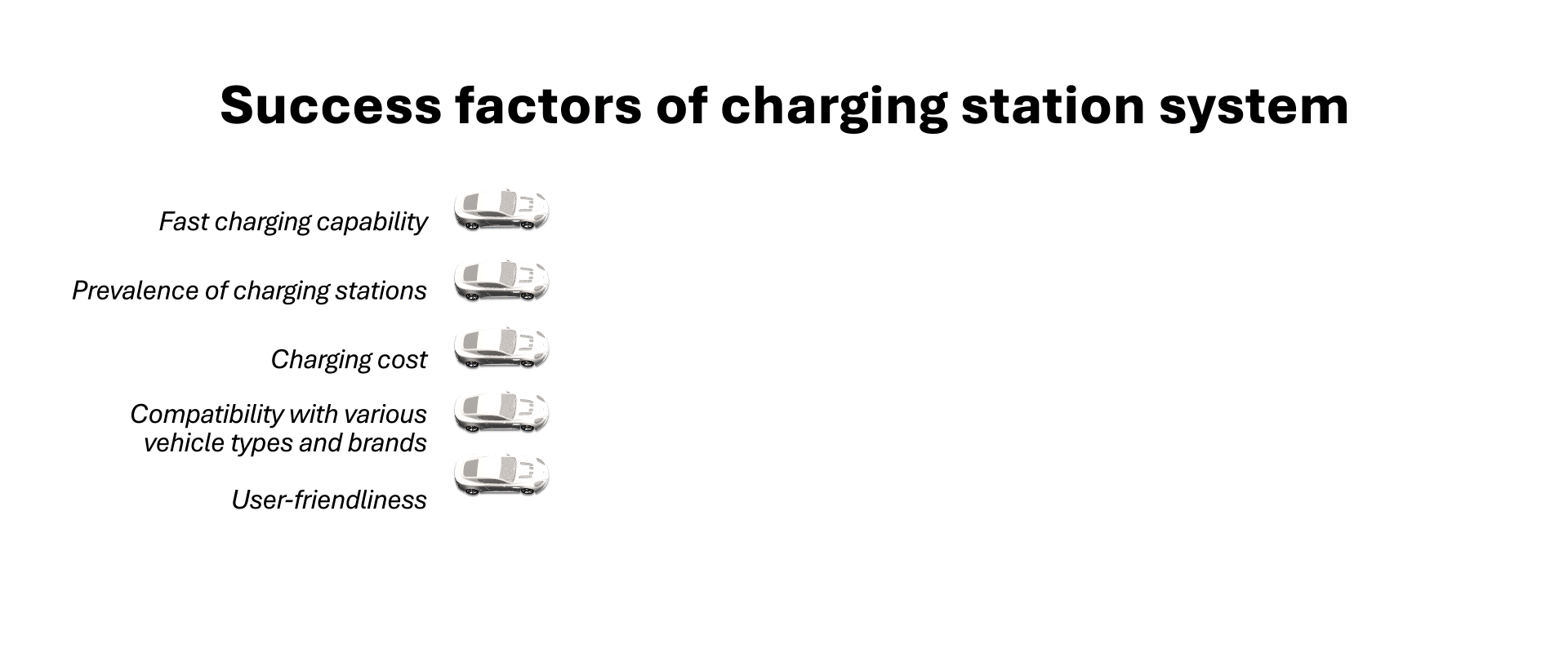
Core product features reign supreme
Durability, performance, comfort/ interior, and vehicle space are paramount considerations when purchasing a vehicle. Subsequently, financial factors and delivery time also come into play.

Younger age group favors advanced features
Regarding desired EV features, power, range, and charging stations stand out as appealing factors; younger buyers show more interest in sustainability, technology, and insurance benefits.
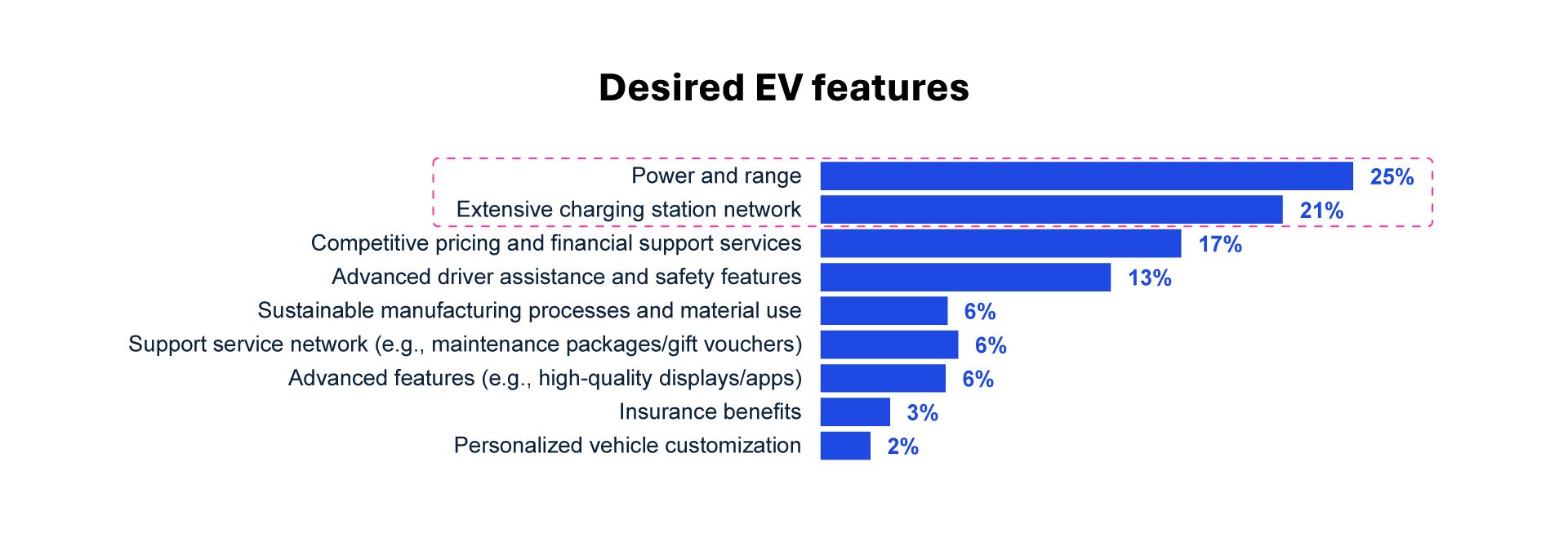
Transparent Return and Warranty policies, Pricing, and Cost of Ownership consultation
Key factors influencing customer purchasing decisions at dealerships, along with financial support factors specifically for 4-wheel buyers.
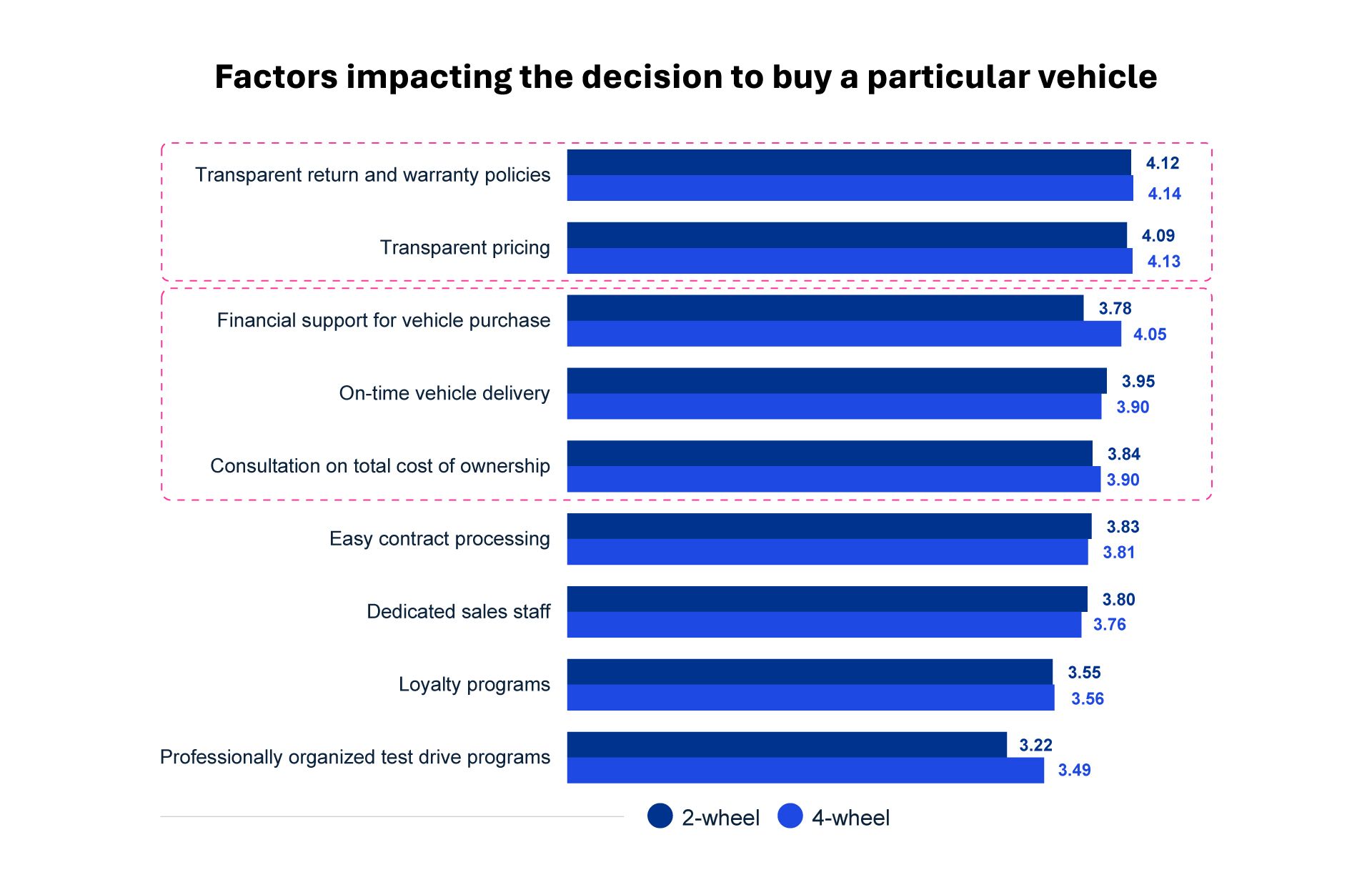
Can Vietnam Become a Regional EV Powerhouse?
In recent years, Vietnam's automotive industry has experienced significant growth and development. Although it started a bit later than neighbouring countries such as Thailand, Indonesia, and Malaysia, the potential is promising. Vietnam has already established itself as a key player in the automotive market.
One of the key factors that contribute to Vietnam's potential in the EV market is the growing manufacturing capabilities in the country. Some ICE and EV models are now produced domestically and exported. The emergence of electric vehicles (EVs) has presented new opportunities for the country to become a regional or even global EV powerhouse.
Additionally, trade agreements between Vietnam and other countries can play a pivotal role in driving Vietnam's EV industry growth. With one of the largest networks of FTAs among ASEAN countries (in terms of signed agreements), Vietnam can gain access to cutting-edge technology, knowledge, and partnerships with other EV markets, enhancing its capabilities further. It is also important for Vietnam to create a supportive policy environment, which includes tax incentives. This would encourage individuals and businesses to invest in EVs, technology, and supporting infrastructure thereby accelerating the growth of the local market.
KPMG's Collaborative Research: Uncovering Consumer Preferences
In response to this need, KPMG in Vietnam and Chợ Tốt Xe have embarked on a collaborative research project. This initiative involved a comprehensive survey of over 1,000 participants from diverse demographics across Vietnam, alongside in-depth interviews with six dealerships experienced in selling both traditional ICE vehicles and full EVs.
This comprehensive approach aims to provide a holistic understanding consumer preferences and market dynamics for electric vehicles in Vietnam. When combined with our Annual Global Automotive Executive Survey, KPMG seeks to equip stakeholders with actionable insights to make informed decisions and propel Vietnam's automotive evolution towards a sustainable and electrified future.
Connect With Us

Luke Treloar
Partner
Head of Global Strategy Group
KPMG in Vietnam

Nguyen Trong Tan
CEO
Chợ Tốt

Vu Anh Kha
Associate Director
Customer & Operations Consulting
KPMG in Vietnam

Trieu Khac Thiep
Director
Head of Vehicles
Chợ Tốt Xe


